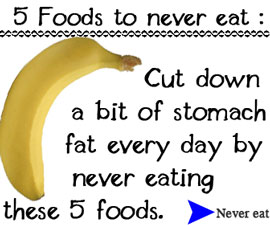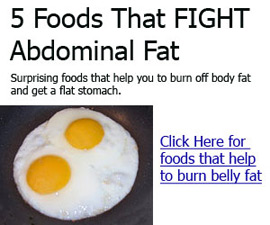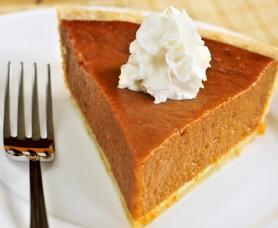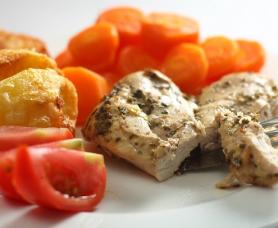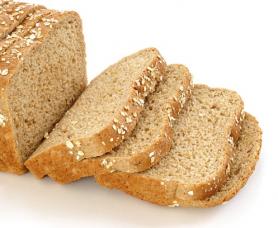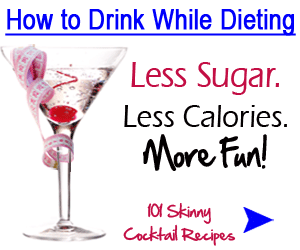When it comes to being overweight or obese, or what the non-weight challenged world simply calls ‘fat’ you know that there are a lot of stereotypes and misconceptions that abound. They believe that those who struggle with weight loss or maintaining a healthy weight loss are simply pigs that can’t control themselves. You and I know that for most of us, that’s hardly the case.
The truth is that there are some overweight people who do fall into that category, but according to a 2009 study conducted by the Dallas Heart Study found that 8% of obese test subjects were satisfied with their weight or believed that they needed to gain weight. But for the rest of us, there may something more…scientific at work.
[Sometimes you can do the right thing and still have a hard time losing weight.]
Keep reading to find out what other factors could be affecting your weight loss efforts.
Cravings
For many of us—overweight or thin—fighting those cravings for foods that add no nutritional value to our diets while piling on calories, fat and sugar feels impossible. How we respond to these cravings plays a huge role in how successful we are at losing weight and subsequently maintaining that weight loss.
Just about every weight loss source you come across—including TFLA—tells you the importance of reducing how much sugar, fat, fast foods and snack foods in your diet. You try, I mean really try but sometimes your desire for these foods occasionally overpowers your sense of reason and you indulge, then hate yourself. It’s a vicious cycle that many of us can point to for one weight loss setback or another.
Forget what the stereotypes say about being overweight, controlling cravings as it turns out, is more than simply “mind over matter” in a major way.
Control Cravings
According to a 2011 study published in the Journal of Clinical Investigation controlling your impulses to eat junk is hardwired into the brains of the obese. This does not mean that obese people are utterly incapable of controlling what they eat and how much of it they consume, but what it does mean is that it is tremendously more difficult.
This study should provide a sense of relief in that you now know that you’re not just greedy, but rather you’ll have to fight harder to avoid indulging and over indulging in unhealthy, high calorie foods.
Just for good measure, take a look at the difference between the delicious food YOU SEE in commercials compared to what you actually get in the bag.
Kind of makes you regret that decision, doesn’t it?
Impulse Control Science
What this JCI study teaches us is that it is more than simply not being able to control your cravings. Researchers showed photos of high calorie (French fries), low calorie foods (salad) as well as nonfood items to both obese and non-obese participants, and monitored their brains using fMRI scanners. By manipulating the blood sugar levels of the participants, the researchers were able to see how the brain reacted to the stimuli of the food and non-food images.
When both groups had low blood sugar, the brain region responsible for rewards was activated, which then triggered a craving for high calorie foods. But when the levels were returned to a normal level, the non-obese group experienced an increase in activity in the prefrontal cortex which controls impulse control, making them less interested in those high calorie foods.
For the obese participants however, it wasn’t that simple. When blood sugar levels were returned to a normal level, they continued to show activity in the reward section of the brain, signaling their craving for high calorie foods.
What This Means For You
This study is important to give us perspective the growing obesity epidemic around the world, but particularly in the U.S. One of the most helpful things we can gather from this study is that it isn’t just about avoiding these foods to fight the cravings. Co-author of this study Rajita Sinha indicated that it isn’t just the foods themselves but also food cues that include print and television ads for high calorie foods.
[Kind of hard to ignore a message that's so appealing, isn't it?]
In a technology-centric world such as ours it is virtually impossible to ignore the millions of ads when you drive down the street, search the web or watch your favorite television program. You can fast forward through commercials like I do but that only gets rid of part of the problem.
So…what can you do?
The easiest answer is the one you’ve been given time and time again; eat healthy meals and healthy snacks. But it’s more than just simply eating these foods, it is eating them to make sure you maintain a normal blood sugar level. This will help you control your cravings for high calorie foods, but another co-author of this study suggests that eating frequent healthy meals with healthy snacks to ensure that even though your brain is still craving high calorie foods, your stomach is sufficiently filled so that you simply don’t have room for that junk.
Tips To Fight Cravings
Now that you know your brain is partially responsible for how you respond to cravings, you can take steps to decrease its influence on what you actually eat. That’s the important thing to remember that just because your brain craves something high calorie, doesn’t mean that you have to give it what it wants.
Here are a few tips to help you fight high calorie cravings when they attack;
- Use fruits & vegetables as snacks; they have lots of fiber to fill you up on very few calories.
- Always keep a healthy snack handy. Carry around nuts, a banana or apple so when you crave something high calorie you’ll have something healthier handy to eat instead.
- Try to eat 4 to 5 smaller meals each day instead of 3 larger ones.
- Plan your meals & snacks ahead of time so you don’t opt for convenience (fast food) over a healthy choice.
- Make sure you eat breakfast every morning; this study showed that those who eat their first meal after Noon will have such low blood sugar that they will continue to eat past the point of satiety.
- Make more of your proteins lean; it digests slower so your hunger is satisfied for a longer period of time, and you have no room for those high calorie foods you crave.
Another tool that you may want to use on occasion to help you fight high calories cravings is intermittent fasting. It will give you a break from those nasty cravings without starving you to the point of over-indulgence.







